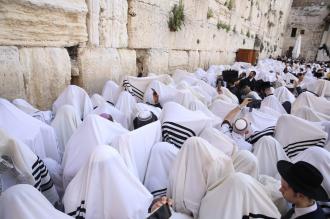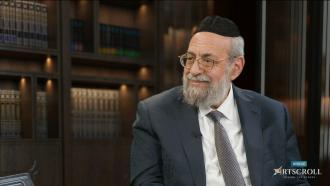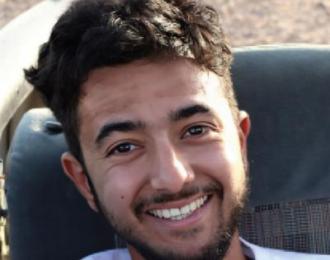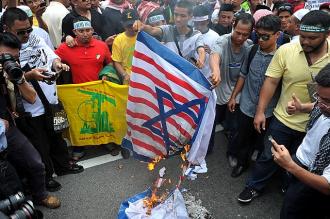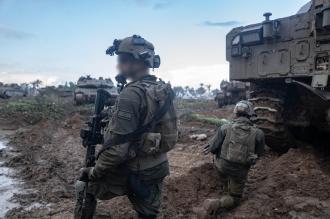A long list of world leaders will attend the funeral of former Israeli Prime Minister and President Shimon Peres, who died on Wednesday at 93.
Some of the world's most powerful figures will be at the service in Jerusalem on Friday, including US President Barack Obama.
Mr Peres's condition had deteriorated after suffering a stroke two weeks ago.
He was one of the last of a generation of Israeli politicians present at the nation's birth in 1948.
Mr Peres won the Nobel Peace Prize in 1994 for his role negotiating the Oslo peace accords with the Palestinians a year earlier, a prize he shared with Prime Minister Yitzhak Rabin, and Palestinian leader Yasser Arafat.
The agreement was witnessed by former US President Bill Clinton and signed at the White House. On Wednesday Mr Clinton said on Twitter: "I will miss Shimon Peres, my brilliant and eloquent friend. His life was a blessing to all who strive for peace..."
###
Belwo is an update from the Office of the Ninth President of the State of Israel, Shimon Peres: As of 21:00, more than 90 delegations from 70 countries are expected to arrive in Israel for the funeral of Shimon Peres including:
1. The United States delegation led by the President of the United States Barak Obama, accompanied by Former President Bill Clinton, Secretary of State John Kerry, and National Security Advisor Susan Rice.
2. The European Council delegation led by the President of the European Council Donald Tusk.
3. The European Union delegation led by the High Representative of the European Union for Foreign Affairs and Security Policy Federica Mogherini and Vice-President of the European Parliament David Sassoli.
4. The UNESCO delegation led by the Director-General of UNESCO Irina Georgieva Bokova.
5. The United Kingdom delegation led by Prince Charles, accompanied by Former Prime Ministers Tony Blair and David Cameron, and Foreign Minister Boris Johnson.
6. The French delegation led by the President of France Francois Hollande, accompanied by Former President Nicolas Sarkozy and Mayor of Paris Anne Hidalgo.
7. The German delegation led by the President of Germany Joachim Gauck accompanied by Minister of Foreign Affairs Frank-Walter Steinmeier.
8. The Canadian delegation led by the Prime Minister of Canada Justin Trudeau, accompanied by Foreign Minister Stéphane Dion, Former Prime Minister Stephen Harper, and a host of additional Former Prime Ministers.
9. The Mexican delegation headed by the President of Mexico Enrique Peña Nieto accompanied by Secretary of Foreign Affairs Claudia Ruiz Massieu.
10. The Dutch delegation led by the Prime Minister of the Netherlands Mark Rutte.
11. The Spanish delegation headed by the King of Spain Felipe VI accompanied by Minister of Foreign Affairs José García-Margallo.
12. The Italian delegation led by the Prime Minister of Italy Matteo Renzi.
13. The Greek delegation led by the Former Prime Minister of Greece George Papandreou and the President of Greece Prokopis Pavlopoulos.
14. The Polish delegation led by the President of Poland Andrzej Duda.
15. The Swiss delegation led by the President of the Swiss Confederation Johann Schneider-Ammann.
16. The Austrian delegation led by the President of the National Council of Austria Doris Bures, accompanied by Minister of Foreign Affairs Sebastian Kurz and Former President Heinz Fischer.
17. The Finnish delegation led by the Prime Minister of Finland Juha Sipilä.
18. The Swedish delegation led by the Prime Minister of Sweden Stephen Levin.
19. The Ukrainian delegation headed by the President of Ukraine Petro Poroshenko.
20. The Latvian delegation headed by the President of Latvia Raimonds Vējonis.
21. The Lithuanian delegation headed by the President of Lithuania Dalia Grybauskaitė.
22. The Luxembourg delegation headed by the Grand Duke of Luxembourg Henri de Luxembourg.
23. The delegation from the Vatican led by Archbishop Antonio Franco.
24. The Côte d’Ivoire delegation headed by the President of Côte d’Ivoire Alassane Ouattara, accompanied by Foreign Minister and Finance Minister.
25. The Togolese delegation headed by the President of Togo Faure Gnasingbh.
26. The Portuguese delegation headed by the Minister of Foreign Affairs of Portugal Augusto Santos Silva.
27. The Brazilian delegation headed by the Foreign Minister of Brazil Jose Seria.
28. The Turkish delegation headed by the Deputy Foreign Minister of Turkey Ahmet Yıldız.
29. The Chinese delegation headed by the Minister of Science and Technology Wan Gang, accompanied by ten representatives of the People's Republic of China.
30. The Singaporean delegation led by the Deputy Prime Minister of Singapore Tharman Shanmugaratnam and Minister of Defense Ng Eng Hen.
31. The Indian delegation led by the Minister of Science and Technology of India Harsh Vardhan.
32. The Australian delegation led by the Governor-General of Australia Peter Cosgrove and including the Secretary of Defense.
Out of media player. Press enter to return or tab to continue.
Media captionEhud Barak: Peres 'never gave up' on pursuit of peace
Other world leaders set to attend the funeral on Friday include UN Secretary General Ban Ki-moon, German Chancellor Angela Merkel, French President Francois Hollande, former French President Nicolas Sarkozy, Canadian Prime Minister Justin Trudeau, Australian Prime Minister Malcolm Turnbull and Mexican President Enrique Pena Nieto.
Mr Peres will receive a state burial at a ceremony on Friday at Mount Herzel Cemetery in Jerusalem.
- Long legacy of Israel's elder statesman
- Obituary: Shimon Peres, Israeli founding father
- World leaders pay tribute
- He "gave hope to millions" says Chief Rabbi
- Mixed media reaction to Peres' legacy
- Shimon Peres: His final speech
Palestinian Authority President Mahmoud Abbas sent a letter of condolence to Mr Peres' family "expressing his sorrow and sadness".
"Peres was a partner in creating the peace of the brave with the late President Yasser Arafat and Prime Minister Rabin, and has made intensive efforts to reach a long-lasting peace since the Oslo agreement and until the last breath," he said in a statement.
It is not clear if Mr Abbas will attend the funeral.
Image copyright Getty Images Image caption Mr Peres shared the 1994 Nobel Peace Prize for his part in negotiating a peace deal with the Palestinians
However, some Palestinians and others across the Middle East were not mourning his passing. Abdul Rahman Daireyeh, a resident in Ramallah, told the BBC:
"He [Peres] is a war criminal who has killed hundreds of Palestinians. He was never a man of peace. Towards the end of his life, he appeared as a man of peace but he was never that person, as he killed hundreds."
The militant Palestinian Islamist movement Hamas, said that Mr Peres's death was the "end of the history of occupation".
Mr Peres once said the Palestinians were Israel's "closest neighbours" and might become its "closest friends".
His son, Chemi, said of his father: "He served our people before we even had a country of our own. He worked tirelessly for Israel from the very first day of the state to the last day of his life."
Out of media player. Press enter to return or tab to continue.
Media captionChemi Peres said his father "worked tirelessly for Israel - from the first day of the state to the last day of his life"
Israel's Prime Minister Benjamin Netanyahu expressed his "deep sorrow" over Mr Peres' death in a video statement.
"As a man of peace, he worked until his final days toward reconciling with our neighbours for a better future for our children.''
Image copyright AP Image caption A special cabinet meeting was called to mourn Mr Peres' death
Once an advocate of Jewish settlements in the occupied West Bank, Mr Peres later became a leading political dove. He often spoke of the need for compromise over territorial demands in Palestinian areas.
Who was Shimon Peres?
- Born in 1923 in Wisniew, Poland, now Vishnyeva, Belarus
- First elected to the Knesset (Israeli parliament) in 1959
- Served in 12 governments, including once as president and twice as prime minister
- Seen as a hawk in his early years, when he negotiated arms deals for the fledgling nation
- In 1996 he ordered the so-called Operation Grapes of Wrath on Beirut in retaliation for Lebanese Hezbollah's escalated rocket-fire on northern Israel. The bombing campaign killed and injured hundreds of civilians
- A member of the government that approved the building of Jewish settlements on occupied Palestinian territory, though he came to see them as an obstacle to peace
- But played a key part in reaching the Oslo peace accords, the first deal between Israel and the Palestinians, which said they would "strive to live in peaceful coexistence"

